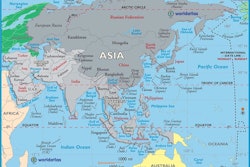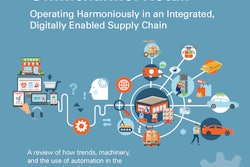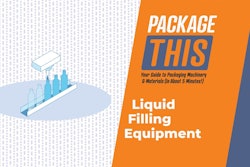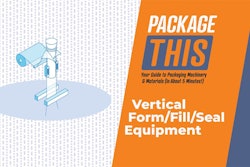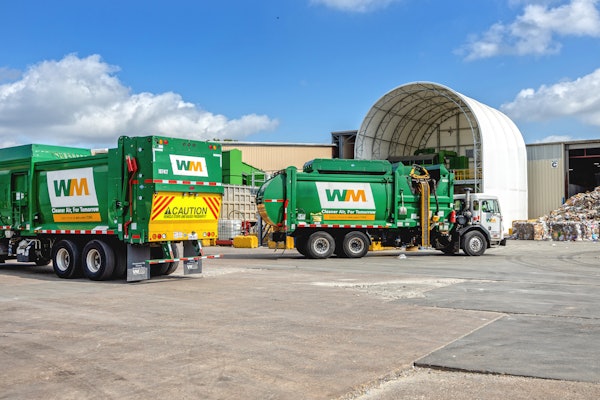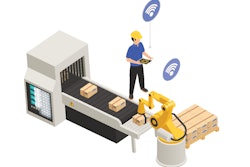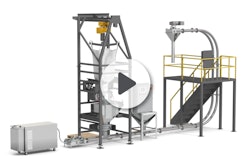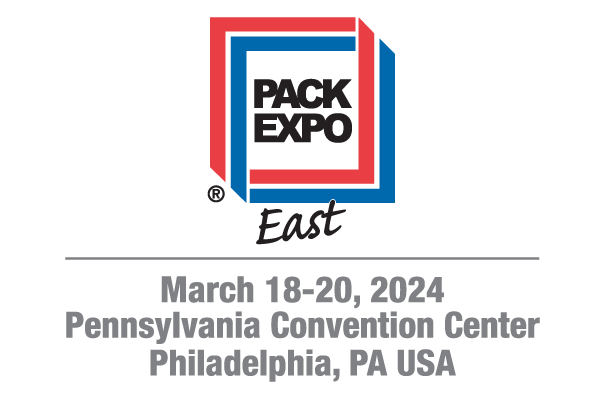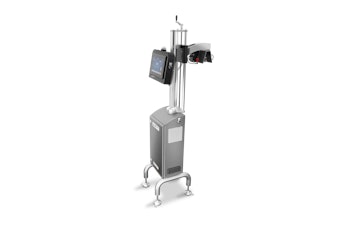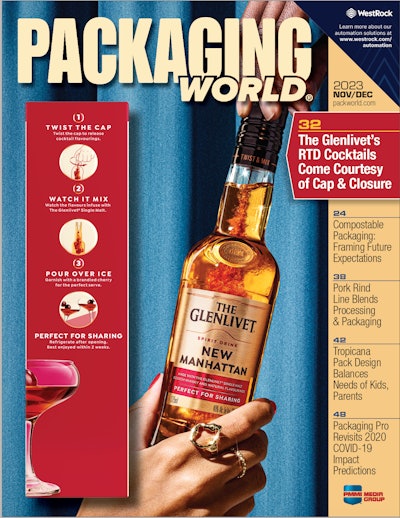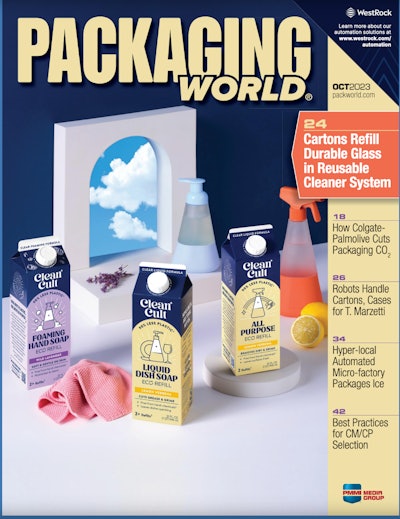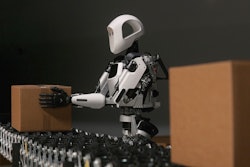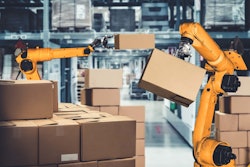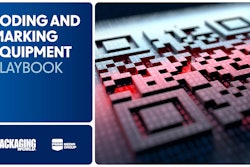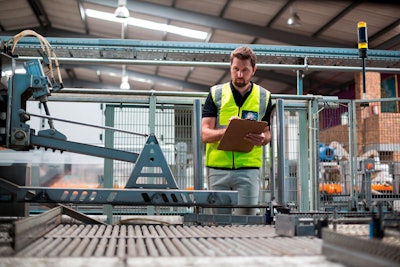
During Andina Pack 2019, the Association for Packaging and Processing Technologies, PMMI, brought together four experts in operations, manufacturing, engineering and packaging development of top multinational companies in the production of consumer packaged goods with presence in Colombia and other Latin American countries to exchange, in a panel, visions and make recommendations sought to enhance the choice and use of packaging machinery offered by OEMs.
The panel, that took place at Hotel Hilton Corferias Bogota on November 20th, produced enlightening conclusions and recommendations for a collaborative work which reflects greater flexibility, operations efficiency and sustainability for CPGs.
Through the diverse lenses of their respective food and beverages, personal care and medical and health care markets, participants at this PMMI panel titled: “How to improve communication and mutual understanding between brand owners (CPG) and Original Equipment Manufacturers (OEM)? Get the best from your original equipment supplier”, answered four key questions focused on: top challenges in their current operation; key factors for choosing packaging machinery and equipment suppliers; importance of the RFP process; and considerations CPGs have when replacing or modernizing their equipment and machines.
These conversations that PMMI facilitates at tradeshows and industry meetings are increasingly appreciated by all actors within the supply chain of the packaging industry. Bringing together the voices and views of technology users at CPGs with the knowledge and experience of OEMs, has shown to be an effective instrument to better understand the needs and challenges imposed by today's changing markets.
Challenges undertaken
The four panelists concurred that the increasing diversity of new packaging formats imposes big challenges on brand owners, who are thus looking for more flexible and simpler machines, preferably modular and easy to maintain, that allow quicker changes between different jobs.
One of the panelists, representing one of the largest and most recognized personal care brands in Colombia, emphatically pointed out how the support of the OEMs and technologies to achieve sustainability in packaging goals and targets of CPGs are, in her opinion, the most important and disruptive factor in packaging technology acquisition decision making today, for which brand owners expect an accompaniment and a commitment from machinery vendors.
The guest panelist questioned the representatives of the OEMs present at the panel: “How many of you are working at the moment with packaging material suppliers and brand owners to respond to the challenges of plastic packaging pollution?”
For its part, the beverage industry panelist, expressed how the training of the operators for the running of newly acquired equipment and technologies is nowadays a critical concern for CPGs, for which they would like a greater participation of OEMs in the design of educational certification programs in machine and equipment knowledge and operation.
“One of the biggest challenges we face today, at our packaging operation, is that the training skills and educational profiles of our operators do not match the skills required to run the acquired technologies. The OEMs can thus help to move from a skills training approach to a certification program, where the OEM is responsible for guaranteeing such skills, and not the CPGs”, added the expert during the Panel in Bogota.
At the time of choosing
For the panelist representing the medical and health care product industry, who is Subject Matter Packaging Expert at a Fortune 500 healthcare company with operations in Colombia, there are two key aspects involved when choosing a packaging equipment supplier: the ability to offer equipment which fully meets the requirements for production in clean rooms; and manufacturers who clearly know the needs of CPGs and help them achieve successful implementations in rigorously regulated environments.
Adding to this, the availability of a service that covers installation, startup and after-sales phases and offered in Spanish to operations personnel. “It is very important to offer installation service, start-up and after-sales effective, efficient and in Spanish. The majority of our maintenance technicians do not speak English, the language is a barrier when the process needs to shorten installation time, start-up and maintenance”, added.
Solutions that accompany innovation is a key factor which differentiates one OEM from another, as stated by the personal care industry panelist. "We are in the era of flexibility," she said during his speech, "and a large investment for a single solution does not solve anything at all... we need more versatility in the changes if we want to innovate in a structure or in a packaging material."
In the beverage industry, where investments in bottling and packaging machinery are generally in millions of dollars, CPGs expect three things when considering a supplier, according to the engineering manager of this CPG which has operations in Colombia, and in other 5 Latin American countries: the inherent quality of machines and processes; an adequate after-sales service that guarantees production reliability and spare parts availability at all times and for all machines; and the commitment that the OEM is a true partner for the development of new products, especially with regards to opportunity, flexibility and reliability.
Beyond the simple process
Requests for proposals (RFP) are essential elements for the acquisition of machinery and equipment and a very relevant step that allows OEMs to fully understand the requirements of the projects. Therefore, the panel consulted the participants about the weight they give them in the pre-purchase process.
For the medical and health products sector participant, RFPs must be handled responsibly and exceed the simple exchange of documents. "It is always very difficult to express on paper all the requirements, and for that reason it is necessary that the OEM and the client become a work team that achieves proposals that generate value and optimize resources", he said.
The benefits of a well-managed RFPs translate into clarity in the commercial contract and in the guarantee of a crystal clear definition of the objectives, according to the engineering manager of the Colombian food and beverage CPG participating in the panel.
“For us, it is one of the most important steps of the development process”, he said, “and the conclusion of the engineering stage of the details. Since we started paying extreme attention to this process, negotiating the acquisition of machines has been easier than ever before.”
Generation clash
A final question gave rise to an interesting conversation between the panelists: When you think about replacing old machinery, what is the essential aspect you are looking for?
The responses covered different aspects, which included the ability to respond to sustainability requirements and reduction of material waste, without detriment to improvements in speed and productivity, to the ease integration with existing equipment.
On this last aspect, the intervention of the healthcare CPG representative was very clear: when a part of the equipment is replaced and must be integrated into the line, a great challenge arises, which consists of “ensuring that old technology does not slow down the new one, thus loosing efficiency for which the new equipment was acquired. ” This integration is not always possible, as the panelist expressed, in which case it is best to design new equipment with a future update in mind, “the group that decides the acquisition, must work seeking to offer a design prepared for the next step.”
In the cases of integration of different generation technologies, the role of the OEM is crucial to guarantee the best results. What companies, such as that of the beverage sector present at the panel, are looking for is reliability, efficiency and flexibility in the processes, factors that must be guaranteed by the vendor. "Here, the biggest challenge is to have an OEM that assumes full responsibility for the final result in the integration of the line", said the panelist in his speech.
A Q&A session completed this dialogue, which put on the table concerns and strategies to establish constructive communications which enhance the results of investments and the packaging equipment and machinery productivity.
